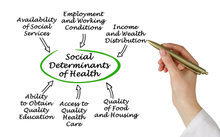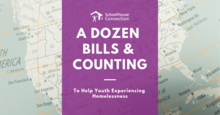Found 41 resources.
0
0
0
Looking for a synthroid? Not a problem!
Enter Site >>> https://newcenturyera.com/med/synthroid <<<
Discreet Package Low Prices 24/7/365 Customer Support 100% Satisfaction Guaranteed.
Tags:
synthroid vi generic
how to buy synthroid
discount synthroid shop illinois
pharmacy synthroid pill gloucestershire
synthroid rx store shop
buy brand synthroid find legally
buy cod synthroid diners club
no prescription l-thyroxine synthroid online
where to buy next synthroid
can i purchase...
Topics: Advocacy, Affordable Care Act, Asset building, Asthma, Attendance, Broadband, Child welfare, CLPHA, Communications, Community development, Cost effectiveness, COVID-19, Criminal justice, Data sharing, Dental, Depression, Disabilities, Domestic violence, Dual-eligibles, Dual-generation, dual-generation initiative, Early childhood, East Coast, Education, Energy, Environmental Resiliency/Climate Change, Exercise, Family engagement, Food insecurity, Foster care, Funding, Grade-level proficiency, Green, Health, Healthy homes, Home visiting, Homelessness, Housing, Housing Is Working Group, Immigrants, Lead, Legislation & Policy, Literacy, Low-income, Medicaid / Medicare, Mental health, Metrics, Midwest, Mobility, MTW, Nutrition, Obesity, Out-of-school time, Pacific Northwest, Partnerships, Place-based, Post-secondary, Pre-natal, Preventative care, Racial inequalities, RAD, Research, Safety, SAMHSA, School-readiness, Seniors, Smoke-free, South, Stability, Substance abuse, Summit 2020, Supportive housing, Sustainability, TA, Transportation, U.S. Territories, Vision, West Coast, Workforce development, Youth
 Shared by Kirsten Ewing
on May 8, 2024
Shared by Kirsten Ewing
on May 8, 2024 0
0
0
Topics: Attendance, COVID-19, Early childhood, Education, Family engagement, Housing, Low-income, Out-of-school time, Youth
 Shared by Kirsten Greenwell
on Jun 17, 2021
Shared by Kirsten Greenwell
on Jun 17, 2021 0
0
0
A discussion with attorney Alex Elson from the National Student Legal Defense Network and director of FAIL STATE, Alex Shebanow, to talk about predatory for-profit institutions and how that affects low income residents.
About the film:
Over five years in the making, FAIL STATE investigates the for-profit college industry and the decades-long reports of student loan abuse within the sector. The film’s central thesis: aided by a cabal of politicians, nationwide disinvestment in public colleges and universities, and an unscrupulous desire to maximize profits at all costs, for-profit colleges...
Topics: Advocacy, CLPHA, Education, Housing Is Working Group, Legislation & Policy, Low-income, Post-secondary
 Shared by Abra Lyons-Warren
on Feb 12, 2020
Shared by Abra Lyons-Warren
on Feb 12, 2020 0
0
0
CLPHA’s Education Working Group convened on Tuesday, June 11 to learn about one of the Housing Authority of Kansas City’s (HAKC) newest housing communities: Pemberton Park, a subsidized apartment building that serves grandparents caring for grandchildren. Representatives from HAKC and their partners discussed the process of establishing the grand-family complex, as well as challenges and successes they experienced along the way.
Topics: Education, Family engagement, Housing, Housing Is Working Group, Low-income, Partnerships, Seniors, Youth
 Shared by Housing Is
on Jun 11, 2019
Shared by Housing Is
on Jun 11, 2019 0
0
0
Authored by Civic and the Everyone Graduates Center at the Johns Hopkins University School of Education, and released annually in partnership with the Alliance for Excellent Education and America’s Promise Alliance, the Building a Grad Nation report examines both progress and challenges toward reaching the GradNation campaign goal of a national on-time graduation rate of 90 percent.
Topics: Education, Low-income, Research, Youth
 Shared by Housing Is
on Jun 11, 2019
Shared by Housing Is
on Jun 11, 2019 0
0
0
The Youth Risk Behavior Survey (YRBS) was first developed by the Centers for Disease Control and Prevention (CDC) in 1990 to assess the health risk behaviors of youth and adults in the United States. For the first time since the survey has been widely administered, the 2017 YRBS optional question list included two questions pertaining to homelessness. SchoolHouse Connection analyzed demographic and risk factor data from the YRBS in 17 states[1], comparing high school students experiencing homelessness and those not experiencing homelessness. This series shares the striking and heartbreaking...
Topics: Education, Homelessness, Low-income, Research, Youth
 Shared by Housing Is
on May 21, 2019
Shared by Housing Is
on May 21, 2019 0
0
0
Decades of policy choices and insufficient public and private investment have made the infrastructure needs of these communities acute, especially in many communities of color where past policy choices affected by racism, combined with continuing racial bias and discrimination, have resulted in a lack of needed economic resources.
Topics: Community development, Education, Housing, Legislation & Policy, Low-income
 Shared by Housing Is
on May 2, 2019
Shared by Housing Is
on May 2, 2019 0
0
0

Are you a Pennsylvanian without a high school diploma? Then sign up with AmeriHealth Caritas for Medicaid and the plan will help you get your GED. Having trouble getting a job in Ohio? If you are enrolled in CareSource, the Life Services JobConnect in CareSource’s managed care organization (MCO) will arrange job coaching and other employment services at no cost. These are not examples of corporate philanthropy. Rather, they reflect a growing recognition in the health care sector, especially among managed care organizations, that good health—and achieving lower medical costs—requires a focus...
Topics: Education, Food insecurity, Health, Housing, Low-income, Nutrition, Research
 Shared by Housing Is
on Apr 25, 2019
Shared by Housing Is
on Apr 25, 2019 0
0
0
Parent involvement is associated with child academic outcomes, positive behaviors, and social skills. This qualitative study explored school-based parent involvement barriers experienced by nine low-income mothers. In-depth interviews were used to collect data from mothers participating in a community-based program offered in a large public housing neighborhood. Findings included three main barriers: (a) cultural and language differences in their children’s school, (b) undertones of racism from teachers and parents, and (c) being the primary caregiver or sole provider for their children....
Topics: Education, Family engagement, Housing, Low-income, Racial inequalities, Research
 Shared by Housing Is
on Apr 25, 2019
Shared by Housing Is
on Apr 25, 2019 0
0
0
Serious mental illness (SMI) is a disabling condition that develops early in life and imposes substantial economic burden. There is a growing belief that early intervention for SMI has lifelong benefits for patients. However, assessing the cost-effectiveness of early intervention efforts is hampered by a lack of evidence on the long-term benefits. We addressed this by using a dynamic microsimulation model to estimate the lifetime burden of SMI for those diagnosed by age twenty-five.
Topics: Disabilities, Education, Low-income, Mental health, Research
 Shared by Housing Is
on Apr 23, 2019
Shared by Housing Is
on Apr 23, 2019 0
0
0

Founded in 1995 as Project Women, Family Scholar House (FSH) provides comprehensive, holistic services for disadvantaged single parents, their children, and foster alumni. The nonprofit seeks to end the cycle of poverty and transform communities by empowering families and youth to succeed in education and life-long self-sufficiency. FSH provides supportive housing, educational programming, and participant advocacy to help families gain independence.
Topics: Dual-generation, Early childhood, Education, Homelessness, Housing, Low-income, Partnerships, Place-based, Post-secondary, South, Stability
0
0
0

Thoughtfully developed, accessible communities may boost parent engagement and student outcomes in low-income neighborhoods
Topics: Community development, Education, Family engagement, Housing, Low-income, Partnerships, Racial inequalities, Transportation
 Shared by Housing Is
on Apr 4, 2019
Shared by Housing Is
on Apr 4, 2019 0
0
0
The nation has large, pressing infrastructure needs, which are often felt most acutely in low-income communities due to decades of policy choices and lack of public and private investment. As federal lawmakers consider investing in infrastructure, a core priority should be to direct substantial resources across a range of areas to low-income communities, which could expand their access to safe living conditions and economic opportunity.
Topics: Education, Funding, Health, Housing, Legislation & Policy, Low-income, Safety, Transportation
 Shared by Housing Is
on Apr 4, 2019
Shared by Housing Is
on Apr 4, 2019 0
0
0

School districts, teachers, and students across the country are beginning to prepare for spring break even though snow still blankets the ground in many states. While many students welcome the break from classes, for many others spring break also means a break from the nutritious school meals and afterschool suppers and snacks they rely on to remain engaged, active, and healthy.
Topics: Child welfare, Education, Food insecurity, Low-income, Nutrition
 Shared by Housing Is
on Apr 2, 2019
Shared by Housing Is
on Apr 2, 2019 0
0
0
Housing is at the epicenter of all opportunities and outcomes. It is the first rung on the ladder to economic opportunity, and a person’s access to opportunity is linked with that of their community. From health, to economic mobility, to educational opportunity, to racial equity, and beyond, housing shapes families and communities.
Topics: Asset building, Education, Health, Homelessness, Housing, Low-income, Mobility, Racial inequalities
 Shared by Housing Is
on Mar 28, 2019
Shared by Housing Is
on Mar 28, 2019 0
0
0

Education Leads Home’s State Partnerships on Student Homelessness Project brings together policymakers and practitioners from with the goal of overcoming child and youth homelessness through education. Through the partnership, each state is committed to researching and implementing replicable best practices that address the most urgent needs of their unique homeless student populations. The State Partnerships on Student Homelessness Project is a nonpartisan effort to develop best practices that can be replicated by communities and states nationwide. In its inaugural year of the project,...
Topics: Child welfare, Education, Funding, Homelessness, Housing, Low-income, Partnerships, Youth
 Shared by Housing Is
on Mar 5, 2019
Shared by Housing Is
on Mar 5, 2019 0
0
0

The 2019 state legislative season is in full swing, and SchoolHouse Connection is hard at work on 12 bills in 7 states (IN, KY, ME, NV, TN, TX, UT). We’re also supporting legislative advocates in 4 additional states (AZ, CA, MD, WA), and anticipate additional bills to be filed in LA, MO, NJ, and NC.
Topics: Child welfare, Education, Funding, Homelessness, Housing, Legislation & Policy, Low-income, Youth
 Shared by Housing Is
on Feb 28, 2019
Shared by Housing Is
on Feb 28, 2019 0
0
0

For many years, the vulnerabilities of children experiencing homelessness have been glossed over on the assumption that their innate resilience would overcome the impact of homelessness. As someone who worked in the field, I would often hear, “Oh, they’ll never remember.” Today we know better. We know more about how the brain develops and about how trauma impacts brain development. There is a growing recognition among providers that these early years are critical for establishing a foundation for emotional, mental, and physical wellbeing, and that we don’t get a second chance at early...
Topics: Early childhood, Education, Homelessness, Housing, Low-income, Research, Safety, Stability
 Shared by Housing Is
on Feb 21, 2019
Shared by Housing Is
on Feb 21, 2019 0
0
0
During CLPHA’s Education Working Group Webinar on addressing school attendance at PHAs, representatives from the King County Housing Authority and the national nonprofit Attendance Works presented on tools for addressing chronic absenteeism, as well as strategies for fostering a culture of attendance among residents.
Topics: Attendance, CLPHA, Dual-generation, Education, Housing, Housing Is Working Group, Low-income, Metrics, Partnerships, Place-based
 Shared by Housing Is
on Feb 12, 2019
Shared by Housing Is
on Feb 12, 2019 0
0
0
Affordable housing campaigns are not new, of course, but what is unprecedented and transformative about Opportunity Starts at Home is the scope and diversity of the partners that are joining forces to advocate for more robust and equitable federal housing policies. The campaign is advised by a Steering Committee including leading national organizations representing a wide range of interests that are working shoulder-to-shoulder to solve the affordable housing crisis.
Topics: Asset building, Child welfare, CLPHA, Community development, Early childhood, Education, Food insecurity, Funding, Health, Homelessness, Housing, Immigrants, Legislation & Policy, Low-income, Mobility, Out-of-school time, Partnerships, Racial inequalities, Safety, Seniors, Stability, Substance abuse, Youth
0
0
0
A guide for youths who are or were homeless, or are at risk of experiencing homelessness
Topics: Education, Homelessness, Housing, Low-income, Post-secondary
0
0
0
Because many children attend elementary schools in their own neighborhood, a child’s access to high-quality schools is dependent on where they grow up. Racial residential and school segregation, along with policies and practices that inequitably distribute resources across neighborhoods and schools, have created a system in which students of color often lack access to high-quality schools compared with white students residing in the same region.
Topics: Child welfare, Education, Low-income, Racial inequalities, Research, Youth
0
0
0
CLPHA’s Education Working Group hosts a webinar including presentations on efforts from the Chicago Housing Authority to work with residents on pursuing postsecondary opportunities, as well as an update from HUD’s Office of Policy Development & Research on data collection around tracking and increasing FAFSA utilization.
Topics: CLPHA, Cost effectiveness, Data sharing, Education, Funding, Housing, Housing Is Working Group, Low-income, Metrics, Midwest, Post-secondary, Research, Stability, Youth
0
0
0
ASAP is a comprehensive program that provides students with up to three years of financial and academic support and other support services to address multiple barriers to student success, with the goal of helping more students graduate within three years. MDRC’s random assignment evaluation of CUNY ASAP found that after three years, 40 percent of ASAP students graduated compared with just 22 percent of control group students. After six years, ASAP students continued to outperform the control group, with 51 percent of the program group earning degrees compared with 41 percent of the control...
Topics: Education, Low-income, Midwest, Post-secondary, Research, Youth
0
0
0

Nearly 115,000 students in New York City schools experienced homelessness during the 2017–18 school year, according to new data released by the New York State Education Department (NYSED) last month. As reported by the New York Times, that figure represents 1 in 10 New York City public and charter school students. Our look at the data on noncharter public school students shows that even that alarming share hides the pervasiveness of student homelessness in some communities.
Topics: Child welfare, East Coast, Education, Homelessness, Housing, Low-income, Racial inequalities, Research, Youth
